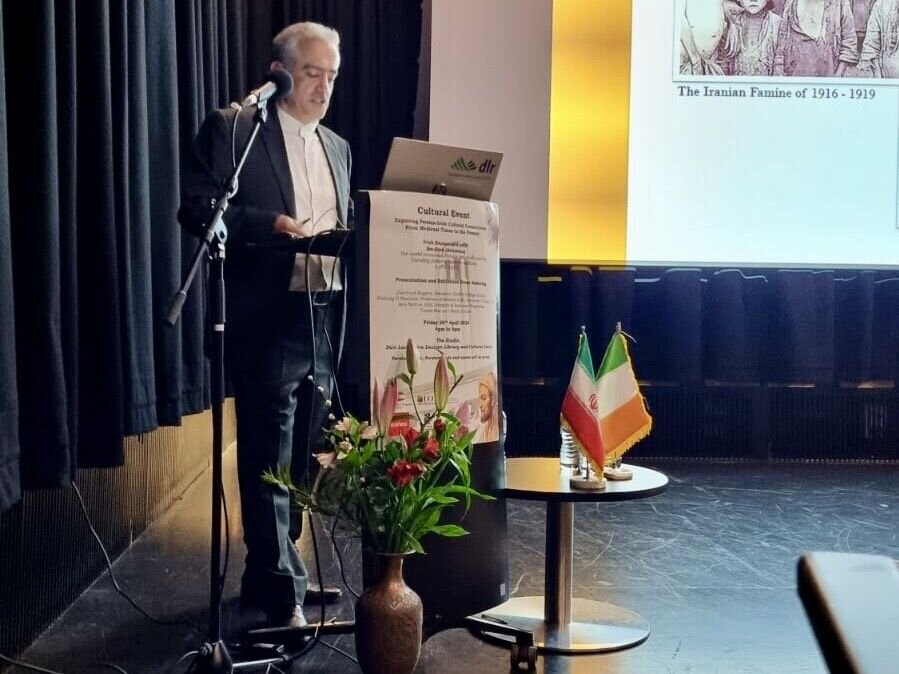TEHRAN- A seminar focusing on the cultural, literary, and historical commonalities between Iran and Ireland, with a focus on Ibn Sina (also known as Avicenna), the prominent Iranian scientist, was held in Dublin.
The event was held to coincide with the 40th anniversary of the opening of the Embassy of the Islamic Republic of Iran in Ireland, IRNA reported on Saturday.
Organized with the participation of University College Cork, Griffith College, and Dun Laoghaire County Council, the event was attended by ambassadors, diplomats, students, and culture enthusiasts residing in Dublin. It began with a speech by Kazem Sharif Kazemi, the Iranian chargé d'affaires to Ireland, the report added.
In his remarks, Sharif Kazemi emphasized the importance of organizing cultural events and exchanges between Iran and Ireland to deepen the relationships and familiarity between the two countries.
He also elaborated on some examples of cultural, literary, and historical commonalities between the two countries, including in epic literature, colonial and famine history, and shared historical sentiments.
Following that, the President of Griffith College listed some common linguistic roots between Iran and Ireland, focusing on linguistic connections between the Persian and Gaelic languages in poetry.
A professor from University College Cork also spoke about the references to Ibn Sina's Canon of Medicine in an Irish manuscript, highlighting Ibn Sina's role in various scientific fields, especially medicine.
Moreover, the European Department Manager of the Edwards International Foundation on Sport for Social Change presented examples of the impact of this field in changing the world, combating racism, and its role in solidarity with the people of Palestine.
During the event, an exhibition of documents related to Avicenna was also unveiled. The original manuscripts and documents are kept in the Chester Beatty Library and the Marsh Dublin Library.
Avicenna was born in 980, near Bukhara, Iran (now in Uzbekistan). He was the most famous and influential of the philosopher-scientists of the medieval Islamic world. He was particularly noted for his contributions in the fields of Aristotelian philosophy and medicine.
He is often described as the father of early modern medicine. His most famous works are “The Book of Healing”, a philosophical and scientific encyclopedia, and “The Canon of Medicine”, a medical encyclopedia, which became a standard medical text at many medieval universities and remained in use as late as 1650, laying out a detailed guide for diagnosing and treating ailments.
Besides philosophy and medicine, Avicenna's corpus includes writings on astronomy, alchemy, geography and geology, psychology, Islamic theology, logic, mathematics, physics, and works of poetry.
Avicenna wrote most of his philosophical and scientific works in Arabic, but also wrote several key works in Persian, while his poetic works were written in both languages. Of the 450 works he is believed to have written, around 240 have survived, including 150 on philosophy and 40 on medicine.
He died in 1037 in Hamedan and was buried there. His tomb is visited by thousands of tourists from various cities and countries every year.
TAGS


No comments:
Post a Comment